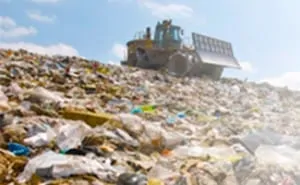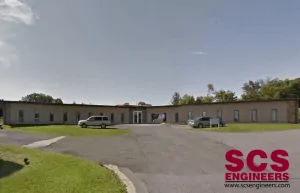


SCS Engineers has also submitted comments pertaining to the proposed EG and compliance revisions to the EPA. SCS leaders are involved in many outreach activities to help landfill owners and operators understand and prepare for the impact of the proposed modifications.
Contact SCS Engineers at for more information, or visit the SCS website for upcoming events and pertinent resources.
Denver, PA. – SCS Engineers is opening a new office in Denver, Pennsylvania. The professional engineering staff currently serving clients in Reading will be joined by additional environmental consulting staff moving to the larger office space on November 1, 2015. The new office is located at:

SCS Engineers
22 Denver Road, Suite E
Denver, PA 17517
Tel: +1-610-382-3050
Denise Wessels, P.E., and SCS Project Manager stated, “We are strengthening our commitment to the Commonwealth, and the new location enables us to broaden our environmental services in the region, including SCSeTools®.”
SCS provides quality environmental consulting and construction services to municipal and private sector clients, and has recently expanded SCSeTools®, a platform for organizing big data collected at landfills. The tools collect data, and then organize the data into analyses, graphs, and maps that allow landfill owners and operators to predict, assess, and plan the operation and maintenance of their facilities. This insight helps with decision-making for operational excellence and helps to improve the bottom line.
SCS Engineers will evaluate the collection, hauling, and processing of organic material and food waste for Placer County in compliance with California’s recently adopted mandatory organics recycling law. According to the California Department of Resources Recycling and Recovery, the state disposes of approximately 30 million tons of waste in landfills each year, of which more than 30 percent could be used for compost or mulch.
The Technical Bulletin is a synopsis of the NSPS rule supplement and the draft EG rule intended by the EPA to strengthen the previously published rule on July 17, 2014, and earlier proposals. The rules frame the requirements and responsibilities created for Municipal Solid Waste Landfills and the Waste and Recycling Industry.
The EPA has provided a 60-day time period from the publication date of August 27, 2015, for industry responses to the draft rules. Responding is critical to properly frame EPA’s rulemaking process; the EPA may add provisions to the final version of the rule based on information received during the comment period.
The Solid Waste Association of North America (SWANA) and the National Waste and Recycling Association (NW&RA) are reviewing the NSPS and EG rule in detail and will be commenting within the prescribed 60-day window.
This SCS Engineers Technical Bulletin, providing a more detailed summary of the rules, is available on the SCS website by clicking here. Share the link or this blog to help speed the efforts to gather information for the Waste and Recycling Industry response.
Contact Pat Sullivan, SCS Engineers, Senior Vice President to request additional information.
Pat Sullivan, REPA, CPP
National Expert – Landfill Clean Air Act; NSPS
SCS Engineers, Senior Vice President
(916) 361-1297
Composting is a viable and important technology for managing organic wastes, as are modern landfills with comprehensive landfill gas collection and utilization systems. Both of these approaches have different capabilities and limitations. Understanding the facets of each approach allows individual communities to make waste management decisions, based on facts by environmental engineers that are beneficial for both human health and the environment.
SCS recently authored a report for the Metro Waste Authority in Des Moines, Iowa regarding their yard waste compost operations. Metro Waste’s yard waste compost system includes a bag and sticker program to support separate yard waste collection, shredding, screening, and windrow composting at the Metro Compost Center, which is co-located atop a closed City of Des Moines Landfill, and at the active Metro Park East Landfill.
The SCS report evaluated the costs, greenhouse gas emissions, carbon sequestration, and the advantages and the disadvantages of continuing their current operations or alternatively considering a partial or full closing of the compost operations. If operations are reduced or stopped, these materials would be disposed of in the active municipal solid waste landfill. The active landfill has a comprehensive gas collection system, and Waste Management owns and operates an 11.2 Megawatt landfill gas-to-energy facility at the landfill.
The report was used by the Metro Waste Authority in early 2015 to support an amendment to Iowa’s solid waste regulations. The amendment allows for yard waste to be disposed of and be managed in landfills, only if the landfill has an active landfill gas collection and control system with a landfill gas-to-energy facility to effectively control and reduce methane emissions. The legislation was passed as a restricted exemption to the State’s ban on yard waste disposal in landfills. The amendment in the State’s regulations provides landfill operators some flexibility in managing these types of materials, as other states have done as well.
Most media channels fully informed their readers of the science and function of both technologies, explaining that when considering all factors, one landfill operation can reap greater environmental benefits than another operation despite using the same solution. Some organizations view the law and the report prepared by SCS as “anti” composting, or that because SCS’s investigative analysis and report proposed options, SCS does not support composting. SCS Engineers fully supports composting. In fact, we design, permit, and operate compost facilities around the nation.
Read the SCS Organics Management webpage
Read about Anaerobic Digestion here and
Economic Strategies for Solid Waste Planning here.
by Mike McLaughlin, P.E.

Coal combustion residuals (CCR) are one of the nation’s largest industrial waste streams, with more than 100 million tons produced annually. Roughly 40 percent of CCR produced is used beneficially, with the remainder disposed in landfills and surface impoundments.
Public and private waste management facilities will have new customers, as utilities that formerly operated their own disposal facilities seek reliable offsite disposal capacity. The cost of managing CCR is going up—EPA estimates the annual costs of its new CCR standards will be between $500 million and $750 million. Other estimates are as high as $2 billion.
However, before accepting CCR materials, MSWLFs should make sure they have modified procedures and otherwise accounted for the unique characteristics of CCR. CCR can have high sulfur content (on the order of 10,000 to 40,000 ppm), and under the right circumstances sulfur compounds can form hydrogen sulfide if CCR is mixed with MSW. To the extent high-sulfur wastes are disposed under conditions that can produce hydrogen sulfide, those conditions should either be controlled (or avoided), or appropriate precautions taken to manage the resulting hydrogen sulfide gas in gas collection and other systems.
There could be other reasons for segregating CCR. For example, placing CCR in a monofill areas might increase the potential for later beneficial use, especially if the materials can be kept dry. Moisture content is a critical factor affecting CCR use in pozzolanic cements, but not all ash materials are suitable for pozzolanic cement in any case. CCR also can affect structural stability of fill mass, operation of gas and leachate collection systems (e.g., through clogging with fines), and dust generation.
Read the entire Technical Bulletin by clicking here.